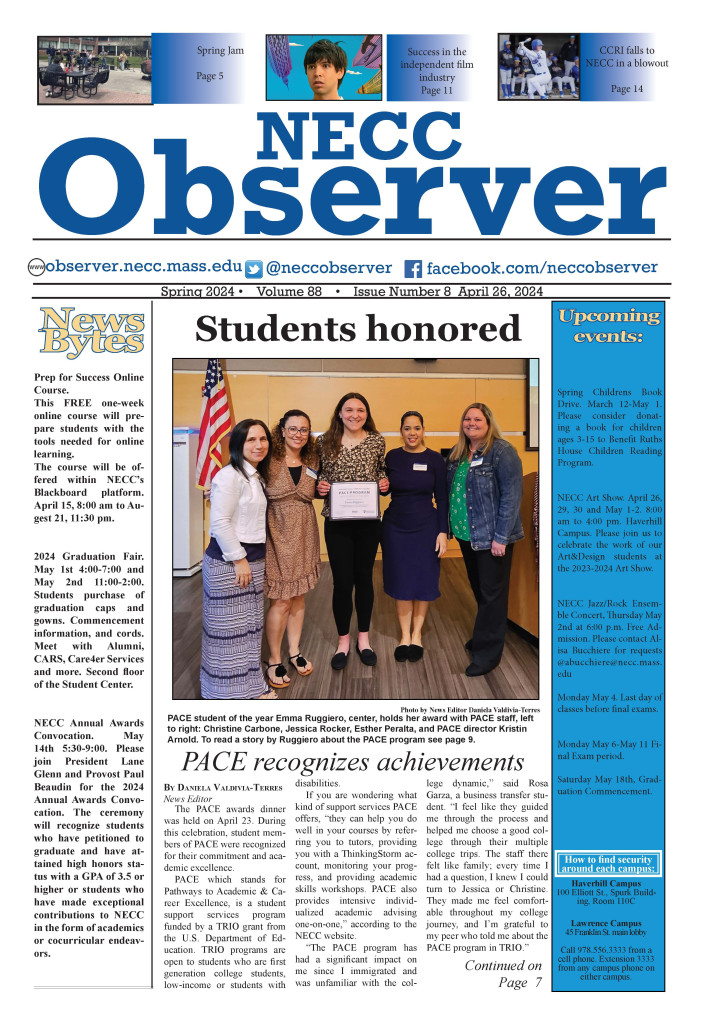Stress and depression are part of the holidays for many
The summer sun has set and the autumn air has nearly just begun. Time to pack away our bathing suits, shorts and flip flops and bring out the blankets, warm sweaters and coats. With the changing of the season not only comes the switch in our wardrobe but unpackaging of holiday decorations and the emotional unpackaging and stress that comes attached to those string of lights and tattered, corny cornucopia display. According to a 2014 survey, containing 292 specific questions conducted by the National Alliance on Mental Illness 64 percent of those already struggling with a mental illness report that the holiday season make their condition worse.
This phenomenon is often referred to as the “Holiday Blues”. Where mental illness, such as depression, eating disorders, anxiety, personality-disorders, etc. are a long-term battle that can often be treated in various ways through medication, therapy and other resources, Holiday Blues differ in a few ways but should be taken just as serious.
Unlike a typical mental illness, like clinical depression, the holiday blues is considered a short-term mental health problem, lasting only for the holiday season. However, for these few months the effects of this short-term problem can be disastrous.
Common signs and symptoms of Holiday Blues reflect that of anxiety and depression, amongst those symptoms other commonly seen behaviors of this illness are; stress, fatigue, the inability to be with loved ones, over-commercialization, and unrealistic-expectations.
During the months of Turkey Trots and candy canes, those battling with Holiday Blues often find themselves coping, or rather not coping, with the financial stress, holiday exhaustion, depression and anxiety by excessive drinking, eating, and lack of self-time. It is hard during winter break to find that valued personal time, due to the overbooked holiday party schedules, family and friends in and out as they’re all home for a few weeks, and of course spending the paycheck of all that extra hours picked up just to never see a dime of it as the money goes to gas of party commutes, gifts, and making some kind of Betty Crocker or Pinterest Holiday dessert. According to NAMI, 755 respondents who suffered with sorrow or unfulfillment, not necessarily with Holiday Blues, but not ignoring them, felt that there were many factors that caused them to feel that way. Too look at it at a percentage standpoint, NAMI found 68% of them felt financially strained. When asked if they felt lonely during the holidays, 66% answered yes. 63% felt too much pressure during the season. 57 percent hold unrealistic expectations. 55 percent found themselves remembering happier times in the past contrasting with the present, while 50 percentwere unable to spend the holidays at home with the ones that they wanted to be with the most.
Luckily, Northern Essex provides students and faculty with counseling services. Karen Hruskra at the NECC Counseling Services says that, “ANYONE can go to counseling.” Her tips for dealing with academic and holiday stress are, “Tips for dealing with academic and holiday stress are, “1) Start studying now! Create a study schedule. Look over lecture notes, book summaries and reviews and review study guides provided by your instructor. 2) Form study groups if you work better with others. 3)Stay healthy during the weeks leading up to finals and the holidays make sure that your habits are healthy. Eat good food, get a good night’s sleep and exercise. 4)Be organized keep your expectations for the holidays manageable.”
Other sources, such as as NAMI and PsychologyToday, suggest “Keeping expectations low” and “Don’t worry about how things should be.” Don’t worry about getting the best gift for your loved ones, don’t worry about getting all of the festive activities done if it’s going to compromise your health, don’t worry about every little detail- the holidays will still come and go and the world will still turn whether or not you found your ugly Christmas sweater. “Schedule You Time,” Breathe. Watch a movie by yourself, go for a walk, kick a snowman, whatever you have to do to relieve stress for a little bit, but do NOT let this allow you to slip into isolation. There is a difference between a few hours of alone, self care and hibernation mode. “Volunteer”. Sometimes you feel a lot better by giving back to others. “Create New Traditions” If you’re feeling lonely this holiday, whether that’s because you’re not with the one you want to be with for various reasons, don’t wallow in it. It’s a time to become creative and start something new, maybe to honor someone who has just passed away and it’s your first year without or someone who can’t be there this year because of a plane delay. “Seek Help”. If the feelings of anxiety and depression are still going on passed the holiday season, it depression and anxiety might be something to look into and not the Holiday Blues, and that is absolutely nothing to be ashamed about. You can even take the first steps by talking to a counselor here at NECC!
NECC counseling services are offered on both Haverhill and Lawrence campus. Call (978) 556-3730 or e-email counseling@necc.mass.edu with the specific campus and time frame you are hoping for to set up an appointment. All discussions with your counselor will be confidential with a few exceptions, for example, serious danger to oneself, others or the college community. The Counseling Services at NECC also offers class presentations and programs about wellness as well as fight the stigma around mental illness. Of course, if you are in a crisis, please call 911, Get Help Now: Crisis Text Line- Text “START” to 741-741.

